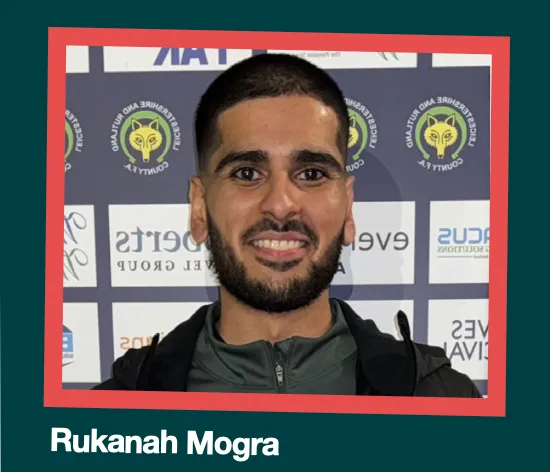
When mosques offer safety and support, lives can be saved.
Knife crime has become a national crisis, spreading through our streets, schools, youth communities, and even our places of worship. In the year ending March 2024, police recorded more than 50,000 knife-related incidents in England and Wales. Tragically, almost one in six of those caught carrying a knife were under the age of 18. Behind each statistic lies a grieving family, a devastated community, and a young life that could have gone on to do so much more.
As British Muslims, we are not bystanders to this crisis. Our faith calls on us to preserve life, stand for justice, and protect the vulnerable. Islam teaches us: “If any saves a life, it is as if he saves the lives of all mankind” (Qur’an 5:32). This isn’t just a moral calling – it’s a communal obligation. It is a call to action for every mosque, Islamic centre, and youth leader: let our spaces be sanctuaries of safety. Let them be part of the solution.
Knife crime is not new, but it is escalating. Sharp instruments were used in 46% of all homicides in England and Wales in the past year. What’s especially alarming is how increasingly young the victims and perpetrators are. Teenage boys, often from marginalised communities, are most at risk – many carrying knives not to harm, but out of fear and peer pressure. These youth are crying out for alternatives, mentorship, and meaning. Mosques are perfectly placed to offer them just that.
As vibrant community hubs, mosques are more than just places of worship. With the right tools and intention, they can offer education, intervention, and hope. By installing knife amnesty bins, delivering youth-focused programmes, and forming local partnerships, mosques can create real, life-saving change.
We’ve already seen this in action.
Green Lane Masjid, in Birmingham, responded to the tragic 2019 murder of 16-year-old Abdullah by relaunching its anti-knife campaign. Their knife bin, which previously collected just seven weapons, filled with over 80 surrendered knives within months. They partnered with the police, ran youth events, and delivered a khutbah on the sanctity of life – reaching 5,000 worshippers.
South London’s Balham Mosque organised a ‘Lives Not Knives’ conference and soon after installed a knife bin in partnership with Word 4 Weapons. In just one year, the number of surrendered weapons tripled. Community trust grew, and violence declined.
In partnership with Nottinghamshire Police, the Trustees of Nottingham Islam Information Point placed a knife amnesty bin outside their mosque in 2024, offering a safe place for anyone wishing to dispose of offensive weapons and help reduce crime on the streets of Nottingham.
There are many ways to continue the success of this work.
Mosques can install knife amnesty bins by partnering with Word 4 Weapons or local police. Campaign funding could be secured through council grants, Violence Reduction Units [VRUs], or as an act of charity. Using this funding to host workshops, sports sessions, or peer-led campaigns is imperative in engaging the Muslim youth. Finally, Imams should use their platforms to deliver Friday Sermons and share awareness on social media about the importance of tackling knife crime.
London’s Muslim communities have not been untouched by the devastating impact of knife crime – with families, youth groups, and places of worship all grappling with its consequences. In response, mosques across the capital have stepped up, offering mentoring programmes, educational workshops, and safe spaces for young people to seek guidance. These faith-based efforts have become essential hubs of support and prevention. For those who may feel hesitant about speaking to someone at a mosque, the Fighting Knife Crime London directory offers a wide range of confidential support and mentoring services – reinforcing our primary mission of providing accessible help to those affected.
Your mosque’s leadership can literally save lives by influencing choices. In the words of one community activist: “Every knife we bin and every young soul we steer away from violence is a victory for us all.”
Let’s strive for those victories every day.
Picture a teenager – scared, isolated, clutching a knife as they walk near a mosque or behind a supermarket. Then they see a sign: “Live Your Life, Drop the Knife.” No cameras. No judgement.
Just a chance to walk away. In that moment, a life can change.
The amnesty bin doesn’t need to be on mosque grounds – just nearby, in a location that feels safe, discreet, and accessible. What matters is that the mosque raises awareness to make sure young people know it’s there.
It’s vital that mosques work closely with local authorities and the police to identify the most appropriate locations – ones that offer privacy, accessibility, and above all, a real opportunity for change.
Our mosques must be more than buildings. They must be beacons of mercy.
Let’s rise to the challenge – with faith, with unity, and with action.
Together, we can save lives.
Together, we can end this cycle.
Stats sources:
• Office for National Statistics – Crime Survey, 2023
• GLMCC Press Statement, 2023
• Balham & Tooting Mosque Case Study, 2023
• Word 4 Weapons Introductory Report 2025 - www.word4weapons.co.uk

Rukanah Mogra, Media & Communications Intern, Muslim Council of Britain
mcb.org.uk
